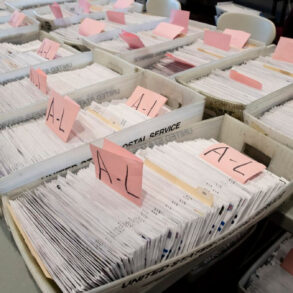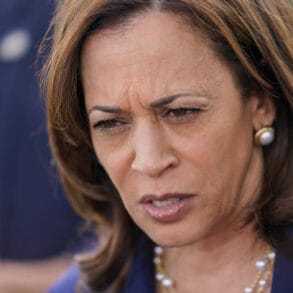Kamala Harris finally sat down for her first interview with CNN since becoming the Democratic presidential nominee, more than a month into her campaign. Conducted by Dana Bash at a casual café setting, the interview seemed more like a carefully orchestrated campaign event than a serious journalistic endeavor.
Strategically avoiding live interviews for so long, Harris managed to create a sense of anticipation, drawing in viewers for what ultimately felt like a campaign advertisement. The interview served as a net positive for Harris; she can now claim to have tackled “tough” questions from a mainstream news outlet, even though the entire segment appeared highly rehearsed, with her responses lacking depth and directness.
Did Harris appear presidential? In a word, no. She seemed evasive, dodging questions rather than providing clear, substantive answers. For undecided voters, this performance might only confirm the criticisms they’ve heard from Republican opponents. Bash allowed Harris’s vague responses, inconsistencies, and questionable claims to slide by without much challenge, making it easy for viewers to dismiss these issues as trivial.
Harris seemed reluctant to acknowledge her record, often employing tactics that could be described as “gaslighting” or reminiscent of Orwellian “doublethink.” It would have been interesting to count how many times she deflected or contradicted herself. Positions she fervently held in 2020 now seem to have been conveniently swapped for their opposites.
Several observations stand out from the interview:
- Scripted Questions: It’s likely Harris was given the questions in advance. The entire segment felt as scripted as one of her campaign rallies.
- CNN’s Soft Approach: The interview was less of a grilling and more of a friendly chat. Dana Bash’s approach was noticeably soft, with few challenging follow-up questions. Any potentially damaging moments seemed to have been edited out.
- Inauthentic Positions: Many of Harris’s responses appeared rehearsed, suggesting her policy positions were more about appeasing her base and party leaders than genuine beliefs.
- Sticking to a Script: Harris repeatedly insisted her values haven’t changed, despite clear evidence of policy flip-flops. This carefully curated narrative seemed designed to gloss over her inconsistencies.
Bash gave Harris the opportunity to outline her plans for the “first day” in office. After some predictable evasion, Harris rattled off vague promises that echoed her usual campaign rhetoric, like promoting an “opportunity economy.” She mentioned measures like tackling “price gouging” and proposing $25,000 for new home buyers—policies criticized for potentially backfiring by increasing costs rather than reducing them.
When asked about “Bidenomics,” Harris dodged the question and blamed Trump for economic woes, despite nearly four years in office under Biden. She cited several economic challenges as proof of success—a classic example of political “doublethink.”
On fracking, Harris claimed she wouldn’t ban it, a stark reversal from her strong stance against it four years ago. Similarly, when asked about illegal immigration, she blamed Trump for stalled progress and denied favoring the decriminalization of border crossings—another flip-flop from her previous position.
Regarding the Israel-Hamas conflict, Harris expressed strong support for Israel’s defense but simultaneously advocated for Palestinian self-determination. This balancing act, while diplomatic, seemed inconsistent with her earlier criticisms of Israel.
The interview concluded with a bizarre detour into conspiracy theories, involving Minnesota Governor Tim Walz, Chinese influence, and far-fetched claims about Biden. This segment veered away from coherent political analysis, leaving viewers questioning its relevance.
From a conservative perspective, the interview came off as little more than a propaganda piece for Harris. However, for undecided voters or those less informed, the interview might have served its purpose: to paint Kamala Harris in a favorable light and solidify her legitimacy as a presidential candidate.








